Daily Vocabulary Words: List of Daily Used Words in Leading International Newspapers
Hi there. Welcome to this special section @ Wordpandit.
Our endeavour here is very simple: to highlight important daily vocabulary words, which you would come across in leading newspapers in the country. We have included the following newspapers in our selection:
• The New York Times
• The Washington Post
• Scientific American
• BBC
• The Guardian
• Psychology Today
• Wall Street Journal
• The Economist
We are putting in extensive work for developing your vocabulary. All you have got to do is be regular with this section and check out this post on a daily basis. This is your repository of words that are commonly used and essentially, we are posting a list of daily used words. Hence, this has significant practical application as it teaches you words that are used commonly in leading publications mentioned above.
Visit the website daily to learn words from leading international newspapers.
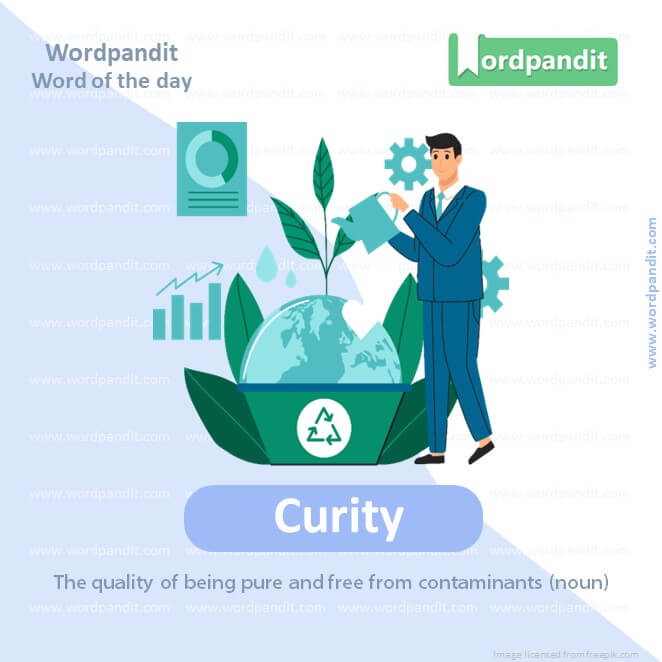
WORD-1: Curity
CONTEXT: Which mirrors its long history of pursuing maximum security at the expense of Palestinian lives, through disproportionate and indiscriminate use of military force.
SOURCE: Al Jazeera
EXPLANATORY PARAGRAPH: Imagine clear, clean water without any dirt. That’s what “curity” is like, but for all things. It’s when something is pure and free from bad stuff.
MEANING: The quality of being pure and free from contaminants (noun).
PRONUNCIATION: “KYURihtee”
SYNONYMS: Purity, cleanliness, clarity, clearness, chastity, untaintedness.
USAGE EXAMPLES:
1. The curity of the water was evident.
2. She valued the curity of her intentions.
3. The curity of the air in the mountains is unmatched.
4. He insisted on the curity of his products.
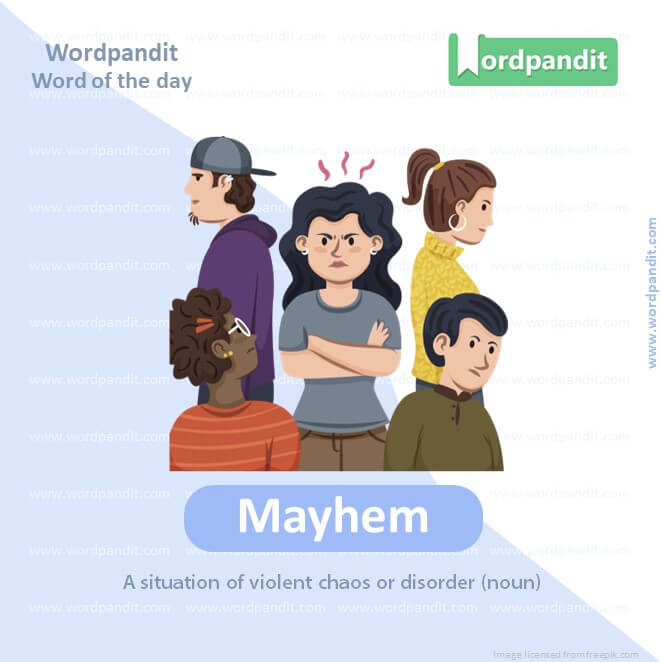
WORD-2: Mayhem
CONTEXT: It is easy to get lost in the midst of mayhem, death and destruction and forget how and why we have arrived at such madness.
SOURCE: Al Jazeera
EXPLANATORY PARAGRAPH: Think of a room where toys are everywhere, and it’s super messy. That’s a bit like “mayhem.” It means things are chaotic and out of control.
MEANING: A situation of violent chaos or disorder (noun).
PRONUNCIATION: “MAYhem”
SYNONYMS: Chaos, disorder, uproar, tumult, pandemonium, bedlam, havoc.
USAGE EXAMPLES:
1. The city was in mayhem after the announcement.
2. After the party, the house was complete mayhem.
3. The storm caused mayhem on the streets.
4. The sudden news caused financial mayhem.
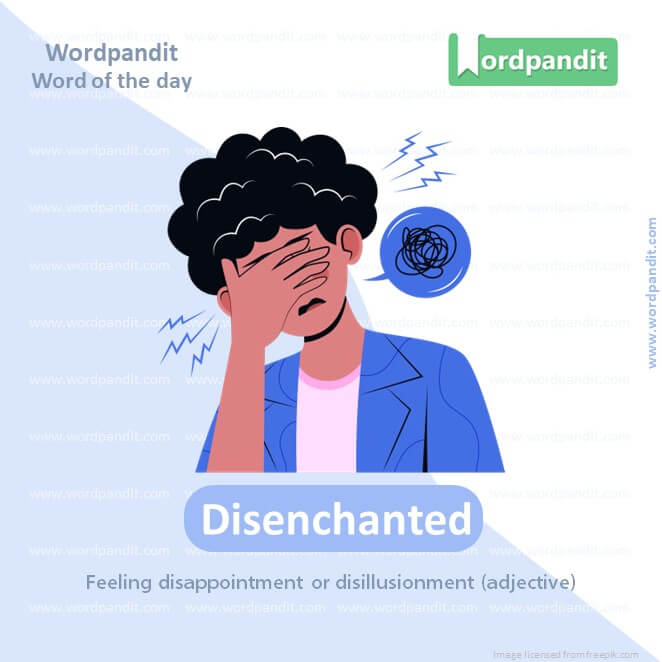
WORD-3: Disenchanted
CONTEXT: Disenchanted old-timers, like the baffled newcomers, find it ever more challenging to make sense of the perpetual bloodshed and the endless recriminations, and wonder if there is ever a solution to this protracted and tragic conflict, after dozen wars, countless peace initiatives and innumerable “creative” solutions failed to resolve the conflict.
SOURCE: Al Jazeera
EXPLANATORY PARAGRAPH: Imagine loving a toy, then one day feeling it’s not as fun as before. That’s “disenchanted.” It means you’re no longer charmed or amazed by something.
MEANING: Feeling disappointment or disillusionment (adjective).
PRONUNCIATION: “disenCHANTed”
SYNONYMS: Disillusioned, disappointed, cynical, disabused, let down, soured, jaded.
USAGE EXAMPLES:
1. She became disenchanted with city life.
2. Many voters feel disenchanted with politics.
3. After the incident, he was disenchanted with his friend.
4. The movie left me feeling disenchanted.
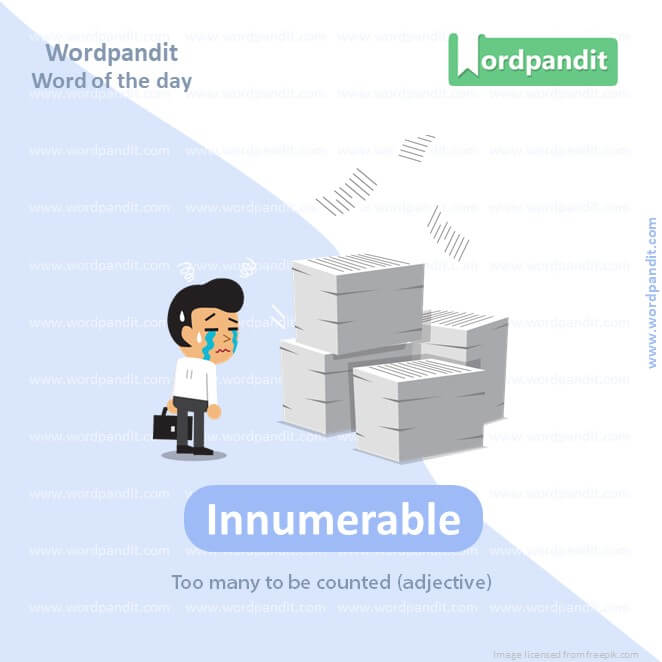
WORD-4: Innumerable
CONTEXT: Disenchanted old-timers, like the baffled newcomers, find it ever more challenging to make sense of the perpetual bloodshed and the endless recriminations, and wonder if there is ever a solution to this protracted and tragic conflict, after dozen wars, countless peace initiatives and innumerable “creative” solutions failed to resolve the conflict.
SOURCE: Al Jazeera
EXPLANATORY PARAGRAPH: Imagine trying to count all the stars in the sky. There are so, so many! That’s what “innumerable” means – too many to be counted.
MEANING: Too many to be counted (adjective).
PRONUNCIATION: “inNOOmuhruhbul”
SYNONYMS: Countless, numerous, manifold, infinite, untold, myriad, endless.
USAGE EXAMPLES:
1. Innumerable stars twinkled in the night sky.
2. She faced innumerable challenges in her journey.
3. The beach was dotted with innumerable seashells.
4. He has helped innumerable students over the years.
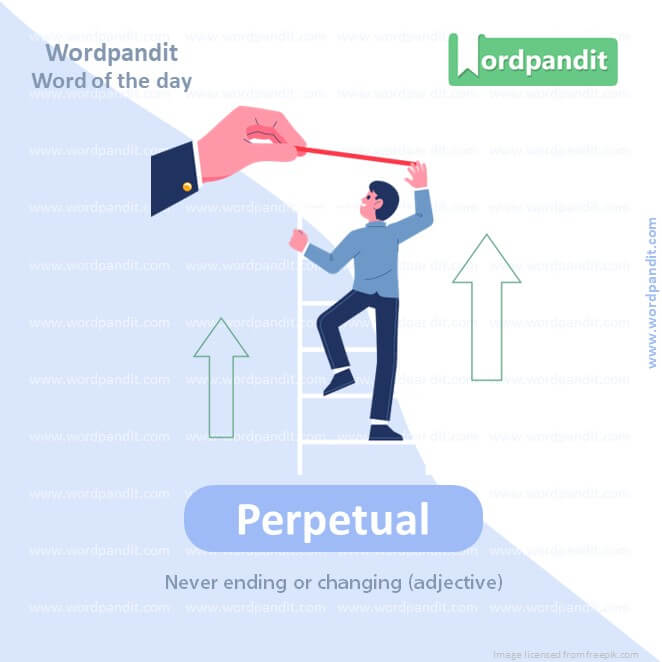
WORD-5: Perpetual
CONTEXT: Disenchanted old-timers, like the baffled newcomers, find it ever more challenging to make sense of the perpetual bloodshed and the endless recriminations, and wonder if there is ever a solution to this protracted and tragic conflict, after dozen wars, countless peace initiatives and innumerable “creative” solutions failed to resolve the conflict.
SOURCE: Al Jazeera
EXPLANATORY PARAGRAPH: Think of something that goes on and on and never stops, like a circle. “Perpetual” means something that’s continuous and doesn’t end.
MEANING: Never ending or changing (adjective).
PRONUNCIATION: “perPETchuul”
SYNONYMS: Endless, continuous, unending, eternal, everlasting, ceaseless, constant.
USAGE EXAMPLES:
1. The forest seemed to be in a state of perpetual greenness.
2. They lived in perpetual fear of an attack.
3. The town has a perpetual mist due to the nearby lake.
4. She has a perpetual smile on her face.
WORD-6: Bloodshed
CONTEXT: Disenchanted old-timers, like the baffled newcomers, find it ever more challenging to make sense of the perpetual bloodshed and the endless recriminations, and wonder if there is ever a solution to this protracted and tragic conflict, after dozen wars, countless peace initiatives and innumerable “creative” solutions failed to resolve the conflict.
SOURCE: Al Jazeera
EXPLANATORY PARAGRAPH: Imagine a sad time when people get hurt and there’s a lot of bleeding. That’s “bloodshed.” It means people got hurt in fights or battles.
MEANING: The act of killing or wounding, leading to bleeding (noun).
PRONUNCIATION: “BLOODshed”
SYNONYMS: Carnage, slaughter, massacre, butchery, killing, murder.
USAGE EXAMPLES:
1. The war resulted in unnecessary bloodshed.
2. The community called for an end to the bloodshed.
3. History books are filled with tales of bloodshed and battles.
4. They tried to prevent further bloodshed through negotiations.
WORD-7: Cynical
CONTEXT: After its establishment through terror and violence, the tiny colonial entity developed a formidable security doctrine that matches its heightened perception of threats – real and imagined – from a cynical world, a hostile region, and a defiant indigenous population.
SOURCE: Al Jazeera
EXPLANATORY PARAGRAPH: Imagine someone who doesn’t believe that good things can happen easily. They might think there’s always a catch. That’s being “cynical.” It means being doubtful of people’s motives or the goodness of situations
MEANING: Distrusting the motives of others; pessimistic (adjective).
PRONUNCIATION: “SINikul”
SYNONYMS: Skeptical, doubtful, mistrustful, suspicious, disbelieving, pessimistic.
USAGE EXAMPLES:
1. She had a cynical view of politics.
2. It’s easy to become cynical after so many disappointments.
3. He gave her a cynical laugh.
4. The movie portrayed a cynical vision of the future.
WORD-8: Dwindling
CONTEXT: My own parents – who were visiting from their home, in Dundee – are trapped in the city of Deir al-Balah along with my brother, a doctor battling to care for injured civilians with dwindling medical supplies.
SOURCE: The Guardian
EXPLANATORY PARAGRAPH: Think of a big pile of cookies slowly becoming smaller and smaller because people are eating them. That’s “dwindling.” It means something is getting less and less.
MEANING: Becoming smaller in quantity or size over time (verb).
PRONUNCIATION: “DWINdling”
SYNONYMS: Decreasing, lessening, reducing, shrinking, waning, subsiding.
USAGE EXAMPLES:
1. The town’s population has been dwindling over the years.
2. They watched as their food supplies started dwindling.
3. The support for the idea seems to be dwindling.
4. The fire was dwindling, producing less heat.
WORD-9: Devastated
CONTEXT: And then that horrible feeling: you’re relieved it’s not your family, but then you’re devastated that it’s happened to another family.
SOURCE: The Guardian
EXPLANATORY PARAGRAPH: Imagine feeling super sad and shocked, like when your favorite toy breaks. That’s “devastated.” It means being really, really upset about something.
MEANING: Severely shocked, upset, or saddened (adjective).
PRONUNCIATION: “DEVuhstayted”
SYNONYMS: Heartbroken, shattered, crushed, desolate, distraught, wrecked.
USAGE EXAMPLES:
1. She was devastated when she lost her pet.
2. The news of the accident left the family devastated.
3. The natural disaster left the city devastated.
4. He looked devastated after hearing the news.
WORD-10: Ceasefire
CONTEXT: Three things are needed immediately: facilitating a ceasefire, the opening of humanitarian corridors, and to let out foreign nationals who, like my parents, can seek safety elsewhere.
SOURCE: The Guardian
EXPLANATORY PARAGRAPH: Imagine two groups who are fighting, and then they decide to stop and take a break. That break is called a “ceasefire.” It’s a pause in fighting.
MEANING: A temporary stoppage of warfare or hostilities (noun).
PRONUNCIATION: “SEESfire”
SYNONYMS: Truce, armistice, peace agreement, suspension of hostilities, respite.
USAGE EXAMPLES:
1. The two countries agreed to a ceasefire.
2. The ceasefire lasted for a month before fighting resumed.
3. International agencies are urging a ceasefire in the region.
4. Many hoped that the ceasefire would lead to a lasting peace.
vocabulary classes
In today’s multicultural world, knowledge is your greatest asset. And in this pool of knowledge, one arena that often goes underestimated is ‘vocabulary classes’. Most people limit the concept of vocabulary to knowing a few fancy words. However, it is much more; it’s about giving you the key to express your thoughts, feelings, and ideas more effectively.
Firstly, let’s examine why vocabulary classes are essential. When you take vocabulary classes, you’re essentially equipping your linguistic arsenal with words that allow you to articulate your messages more accurately. A well-developed vocabulary means not only knowing a multitude of words but also being able to utilize them in the appropriate context, thus enhancing your communication skills.
Now, how should we approach learning in vocabulary classes? The process of expanding your vocabulary should not be stressful. The best approach is to incorporate playfulness, curiosity, and active engagement. Incorporate reading, writing, listening, and speaking activities that are sourced from various contexts – books, movies, podcasts, discussions, and debates.
One important principle to remember when taking vocabulary classes is repetition. Repeated use of new words in different contexts will reinforce their meaning and solidify them in your memory, reducing the chance for forgetfulness.
Moreover, let’s not forget the role of technology in vocabulary classes. There’s a variety of applications and online platforms that have revolutionized the way we learn new words. They offer interactive classes, quizzes, games, and other engaging resources that make the learning process fun and effective.
In summary, vocabulary classes serve as a potent tool for enhancing your communication skills, and expressing your ideas confidently and clearly. Whether you are a business professional, student or just looking to improve your language abilities, vocabulary classes are amongst the best investments you could make. You not only learn new words but get the confidence and tools to wield them effectively.







